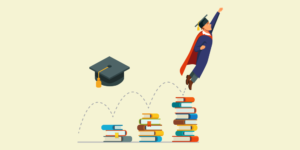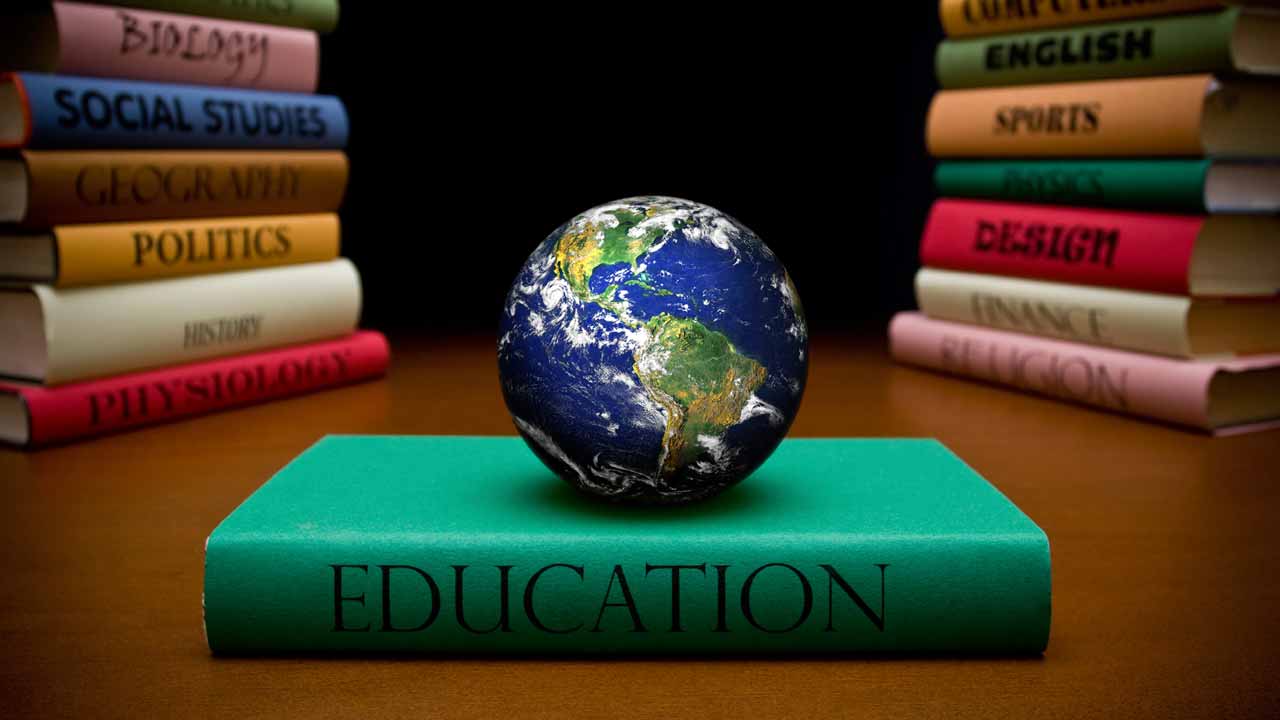Have you ever wondered why education is so highly valued in society? It’s not just about passing exams or securing a job, education holds the key to unlocking countless opportunities and transforming lives. Whether you’re a student, a parent, or someone looking to make a difference, understanding why education is important can reshape the way we approach learning and growth.
What is Education?

Education is the process of gaining knowledge, skills, and values through learning, which equips you for life’s challenges. It helps you understand the world better, and more importantly, it helps you improve your position in that world.
Nelson Mandela once said, “Education is the most powerful weapon you can use to change the world.” Whether it’s a child dreaming of a better future or an adult building a career, education is the foundation of growth.
In this article, we’ll take a closer look at why education is so important and how it shapes our lives, society, and the future of our world.
Top Reasons Why Education is Important
10. Prepares the Next Generation
Education does more than shape individuals, it also plays a role in preparing future generations for the challenges they will face. By providing young people with the knowledge, skills, and critical thinking abilities, we give them the tools they need to solve global problems like climate change, poverty, and the rapid advancement of technology.
When children and young adults are educated, they become the innovators, leaders, and problem-solvers of tomorrow. They are equipped not only with academic knowledge but also with the values and problem-solving skills necessary to navigate an increasingly complex world.
In this way, education is not just an investment in the present but in the future, ensuring that today’s youth are ready to face whatever challenges come their way.
9. A Safer Society
Education is essential for building a safer and more peaceful world. It teaches people the difference between right and wrong, encourages good behaviour, and helps them understand their responsibilities as citizens. In Nigeria, where security challenges are often a concern, education can be a powerful tool for promoting peace and unity.
By educating individuals, we reduce the chances of violence and conflict. Education helps people understand the importance of tolerance, respect for others, and peaceful coexistence. When people are educated, they are more likely to make informed decisions, avoid harmful actions, and work together for the greater good. This, in turn, can help build a more stable society, where everyone feels valued and safe.
In short, education isn’t just about reading and writing it’s about creating a society where people understand each other, live in harmony, and contribute to a safer world.
8. Boosts Economic Growth
Education is the key to unlocking a nation’s potential. For a country to grow and prosper, its people need to be educated. When citizens are well-educated, they gain the skills and knowledge necessary to contribute to the workforce. This leads to more innovation, better productivity, and stronger industries.
In countries where education is valued, people have the tools to create new ideas, build businesses, and improve existing systems. As a result, these countries experience faster economic growth and a higher standard of living for their citizens.
In Nigeria, for instance, if more people were educated, there would be more skilled workers in fields like technology, healthcare, and agriculture. This would help businesses grow, create jobs, and improve the economy overall.
When people are educated, they become valuable assets to their country, driving its economic success and improving the quality of life for everyone.
7. Promotes Healthier Lives
Educated individuals are more likely to make informed decisions about their health and well-being. They understand the importance of regular exercise, good nutrition, and mental health. As a result, they are better equipped to live longer, healthier lives.
For example, educated individuals tend to avoid risky habits like smoking or poor diet choices, reducing the chances of preventable diseases. Education also increases awareness about proper healthcare and sanitation practices, leading to healthier communities.
Improving education in Nigeria can have a significant impact on raising awareness about health and wellness, reducing preventable diseases, and creating a healthier population overall
6. Fosters Social Responsibility
Education helps to shape individuals into responsible citizens who care about the well-being of their communities. When people are educated, they understand the importance of values like empathy, kindness, and respect for others. These values are crucial for building strong, peaceful societies, especially in a country as diverse as Nigeria.
An educated person is more likely to get involved in community activities, volunteer, and support causes that improve society. They are also more likely to vote and participate in elections, making sure their voices are heard in decisions that affect the future of their country.
By promoting education, we nurture a generation of people who understand their roles in creating a better society.
5. Enhances Personal Growth
Education goes far beyond books and exams as I said earlier. It’s a journey of self-improvement. Through education, we learn to manage our time, stay disciplined, and build resilience the qualities that help us succeed in life, not just in school.
But it’s not just about skills; education opens our minds. It introduces us to new ideas, challenges our way of thinking, and helps us understand different cultures, beliefs, and traditions.
4. Encourages Critical Thinking
Education does more than just fill our heads with facts, it teaches us how to think. When we learn, we’re not just absorbing information, we’re learning to ask the right questions, analyze situations, and make decisions based on logic and reason. This is what we call critical thinking.
Critical thinking is essential for personal growth and societal progress. It empowers us to challenge outdated ideas, come up with creative solutions, and make choices that benefit not just ourselves, but our communities and the world.
3. Promotes Equality and Justice
Education is one of the most powerful tools we have to fight inequality. Imagine a world where every child regardless of where they come from has the same chance to succeed. That’s the power of education. By providing everyone with access to quality education, we give them the knowledge and skills needed to overcome barriers and break free from the limitations of their circumstances.
In Nigeria, where economic and social inequalities can be widespread, education plays a vital role in levelling the playing field. It empowers individuals from all backgrounds to pursue their dreams and contribute to society. Whether it’s access to better jobs, healthcare, or equal opportunities, education helps bridge the gap and creates a fairer, more just society for all.
2. Unlocking Financial Independence
Education is the key that unlocks doors to financial freedom. It’s not just about learning theory it’s about gaining the practical skills needed to thrive in today’s world.
In Nigeria, where many face financial challenges, education offers a lifeline. It gives people the tools to escape poverty by opening up opportunities for better jobs and entrepreneurship. With the right knowledge, individuals can make smart decisions about saving, investing, and managing their money, ultimately leading to greater financial security for themselves and their families.
1. Paves the Way for Success
Knowledge and learning are the keys to unlocking success, both personally and professionally. It’s not just about what’s taught in the classroom; it’s about the opportunities that come with acquiring skills and understanding. With the right knowledge, you’re equipped to pursue diverse career paths, earn better salaries, and enjoy greater job security.
For example, someone with the right qualifications has the chance to excel in fields like healthcare, business, technology, or the arts. Gaining expertise sharpens your abilities, deepens your understanding, and helps you stand out in the job market, setting you up for growth and advancement.
Conclusion
In Summary, education isn’t just about earning certificates it’s about creating a better future. It builds the foundation for personal growth, social responsibility, and a prosperous society. Whether you’re a student or a teacher, education is the key to unlocking your potential and shaping a brighter tomorrow.
Frequently Asked Questions
Q: Why is education so important?
A: Education is the key to unlocking opportunities. It helps individuals improve their skills, build a better future, and contribute to society’s growth and progress.
Q: How does education help improve society?
A: An educated society is more peaceful, productive, and responsible. It promotes understanding, reduces conflicts, and drives social and economic growth.
Q: Can education boost economic growth?
A: Yes! Education empowers people with skills that lead to better jobs, higher productivity, and innovation, all of which contribute to stronger economies.
Q: How does education improve health?
A: Educated individuals are more likely to make informed health decisions, leading to healthier lifestyles, better access to healthcare, and fewer preventable diseases.
Q: How can education promote equality?
A: Education levels the playing field by offering everyone, regardless of background, equal opportunities to succeed, helping reduce social and economic inequalities.
Related Topics:
Choosing Between Public and Private Schools: Pros and Cons to Consider
10 Inventions of Thomas Edison That Changed The World Forever
Share This Post: If you believe that this post can benefit someone else, kindly share it using the buttons below.






